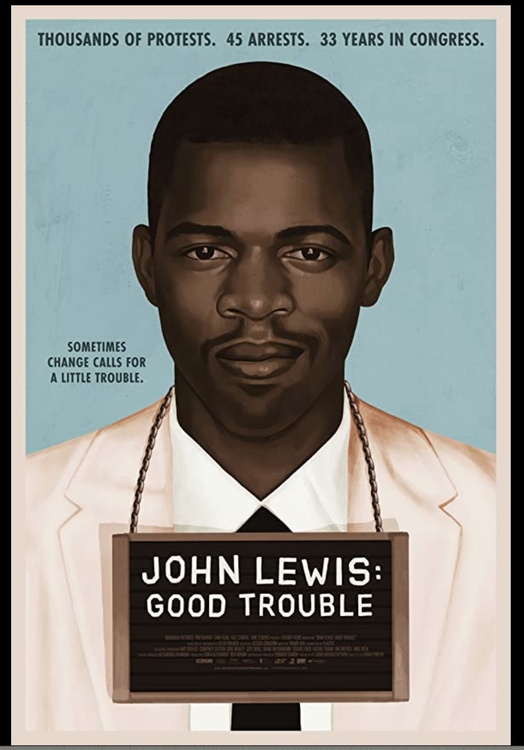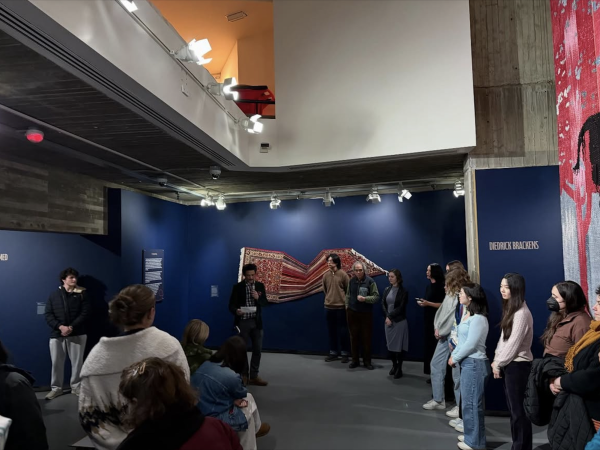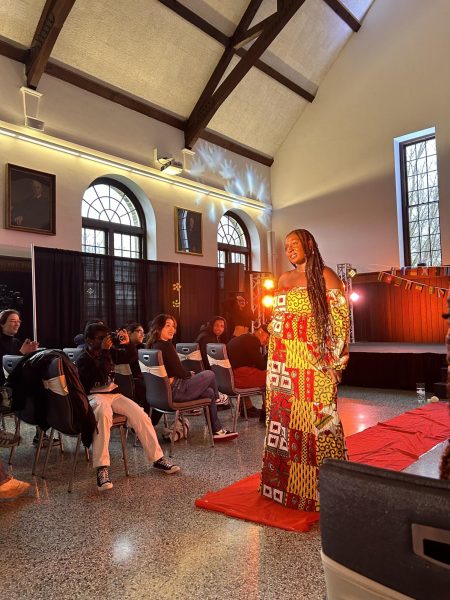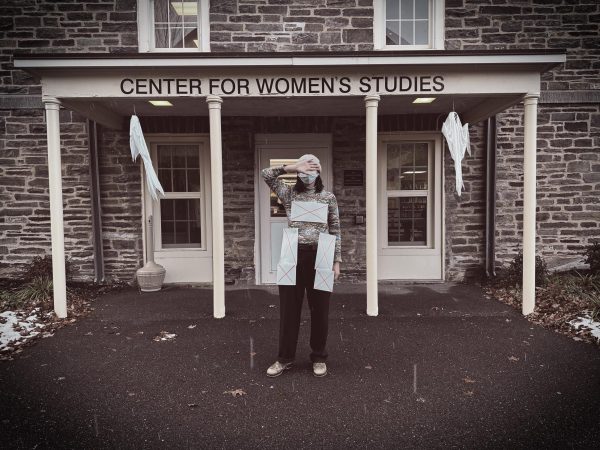John Lewis: Good Trouble Screened for MLK Celebration
As part of the Friday Night Film Series, the Film and Media Studies Program organized a screening of John Lewis: Good Trouble, a documentary that was released in the summer of 2020 and directed by Dawn Porter. The event, co-sponsored by the ALANA Cultural Center as a part of Colgate’s MLK week celebration, also included a discussion of the film and the issues surrounding it.
The film follows the life of U.S. Congressman and Civil Rights activist John Lewis. Lewis was a major figure of the civil rights movement, helping organize the March on Washington in 1953 and leading the first Selma to Montgomery march in 1965. He later went on to serve in the United States House of Representatives from 1987 until his death in July 2020.
The event opened with a discussion between Ani Maitra, Professor of Film and Media Studies, Dionne Bailey, Assistant Professor of Africana and Latin American studies and Griffin Fenady, a senior majoring in FMST. The discussion touched on a variety of topics, including the Civil Rights Movement, John Lewis’ legacy and perpetuating inequalities in the United States.
During the post-screening discussion, Bailey talked about the film’s representation of this specific moment of time in black history. She drew connections across time, explaining that many of the issues in the film, such as voter disenfranchisement, are still present today. Professor Bailey also talked about the peaceful protests that the film captures, noting that nonviolence was a core principle of the civil rights movement, which was supported by CORE (Congress of Racial Equality) and SCLC (Southern Christian Leadership Conference), two leading civil rights groups.
After learning about the legacy of John Lewis and the civil rights movement through the documentary and discussion, attendees like Fenady began pondering how films and other media can fit into the world of politics and activism.
“I think film plays a particularly significant role in social activism and politics, as it can be a tool unlike any other form of media in terms of documenting events. I would contend that film is perhaps the easiest form of media to consume, as one does not need to be able to read or write to understand the images on a screen,” Fenady said.
Fenady also argued that the film does more than just give a viewer simple images, as it uses primary source interviews and archival footage non-chronologically in order to allow the audience to see multiple perspectives.
During the discussion, Bailey noted that some of the footage used in the film, particularly the archival footage from the civil rights movement, could be triggering, as it shows peaceful protestors being physically and verbally abused. For anyone considering watching this film, Bailey suggested using the documentary as a form of historical documentation that can be a measure for how far we have come in terms of racial equality and to show how much more we still need to change.
Fenady added that viewers should keep in mind the genre:
“Documentaries oftentimes are the most authentic and transparent genre of film. Therefore, I think the viewers should acknowledge the significance of the choice of documentary over fiction,” Fenady said.
With these takeaways, the discussion provided an interesting look into John Lewis’ life, legacy and the legacy of the civil rights movement. That the conversation brought participants to consider how racial equality and the history of race in the U.S. perpetuate made this a fitting event for the celebration of Martin Luther King Jr. week at Colgate.

Maya Karkhanis is a senior from Hillsborough, NJ concentrating in international relations, religion, and Asian studies. She has previously served as an...










